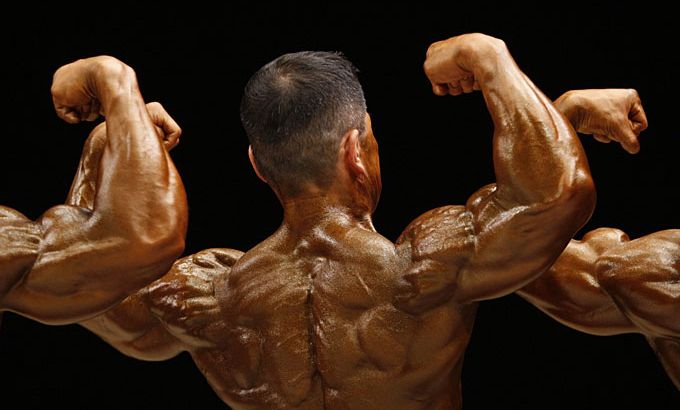
Body Beautiful
How far will some Australian men go to achieve the perfect body?
Many Australian men are risking their lives for the perfect body.
More young men are bowing to societal pressure to be physically bigger and stronger, but psychologists warn that taken to the extreme, this can lead to a new mental illness known as “body dysmorphia”.
Keep reading
list of 4 itemsWoman, seeking loan, wheels corpse into Brazilian bank
UK set to ban tobacco sales for a ‘smoke-free’ generation. Will it work?
Poland lawmakers take steps towards liberalising abortion laws
In their quest for the perfect physique, these men are doing whatever it takes to attain the ultimate “ripped body”.
From going through months of intensive dieting to spending hours in the gym daily, some are also turning to dangerous “quick fixes” in the form of steroids and performance enhancing drugs.
While the drugs are heavily restricted in Australia by laws that are among the strictest in the world, those willing to put their lives on the line have turned to countries like Thailand where regulations are less strict.
Rather than risk prosecution in Australia, they travel to Asia and ”stack” a dangerous cocktail of steroids that include powerful veterinary drugs and fertility medicine. Health experts say the products can cause life-threatening heart and liver damage, as well as baldness and infertility.
101 East asks how far will these men go to achieve the perfect body.
| Athletic discipline or an unhealthy obsession? |
By Fauziah Ibrahim
I admit I am competitive. With myself. So when I started weight training a year and a half ago, it became an obsession. It was not so much the goal of acquiring a physique worthy of a Russian athlete. It was more the challenge: How heavy could I lift? How many reps could I do? How defined could I get? How much better could I be? So when I came across research about a psychiatric condition that compelled men to develop bigger muscles at all costs, I jumped at the chance to cover the issue of muscle dysmorphia.
But like its opposite, anorexia nervosa, many sufferers are too ashamed to talk about it. In fact, clinical psychologist Dr Stuart Murray says a few of his patients were unaware they had muscle dysmorphia as it is socially expected for men to be obsessed with becoming physically bigger. But when it was pointed out that training in spite of a broken limb, or refusing to socialise for fear of breaking a strict diet regime was not normal, only then would they admit to having an obsession.
The people who spoke to us, Johnny Starr, Luke Schembri and Nathan Roe were to some extent obsessed about getting bigger. Were they suffering from muscle dysmorphia? It is hard to say as they had valid individual reasons – be it aesthetic, competition or self-improvement. I came away with a high regard for their dedication to eating “clean foods” (boiled chicken, eggs and broccoli were favourite dishes) and training hard every day.
But was I in some way admiring a psychiatric condition? Again, it was difficult to draw the line between athletic discipline and unhealthy obsession. I watched as Johnny met friends at a bar and only drank water. I noticed Luke was edgy and tense all day until after his workout. I observed Nathan devouring half a pavlova off-camera. And yet, all three insisted they were not missing out on life.
What struck me most in covering this story was the obvious physical flinching when “steroids” were mentioned. It is a known fact that competitive bodybuilders in the 1970s frequently used performance-enhancing drugs to gain bulk and define muscles. Since then, the industry and anyone who looks like a bodybuilder is unfairly associated with steroids and human growth hormones.
So I had to ask, “Do you use steroids?” Some were offended at the suggestion, vehemently insisting their physique was the result of hours of natural hard sweat. A few were evasive, not wanting to admit to being chemically-enhanced. Others smiled shyly and walked away, leaving me staring at their muscled but acned back, a sign of steroid use.
At the end of it all, you cannot fault anyone for taking an interest in eating healthy and exercising. Their discipline and determination are to be respected. Be it gym junkies, bodybuilders or muscle dysmorphia sufferers, they are merely making lifestyle choices that are different to the norm. But the next time you miss a friend’s birthday party, you might want to pause between sets, put your protein shake down, and look in the gym mirror.
101 East airs each week at the following times GMT: Thursday: 2230; Friday: 0930; Saturday: 0330; Sunday: 1630. Click here for more 101 East . |
